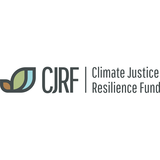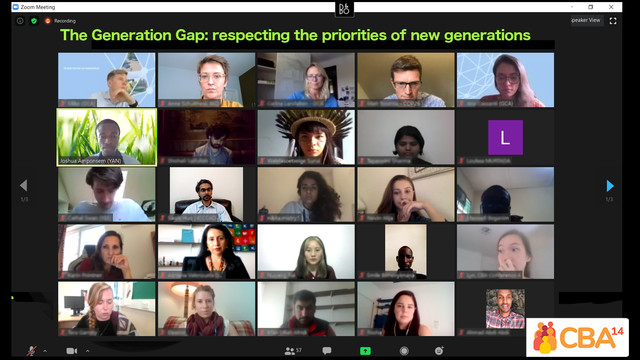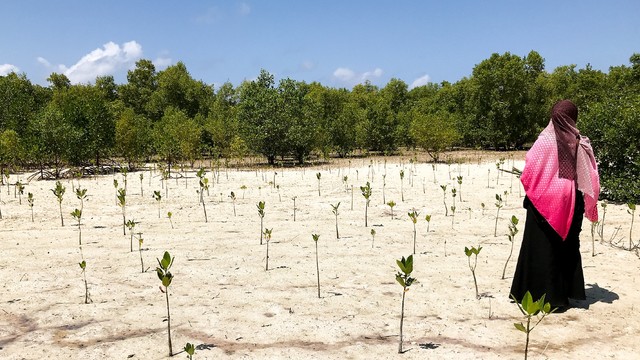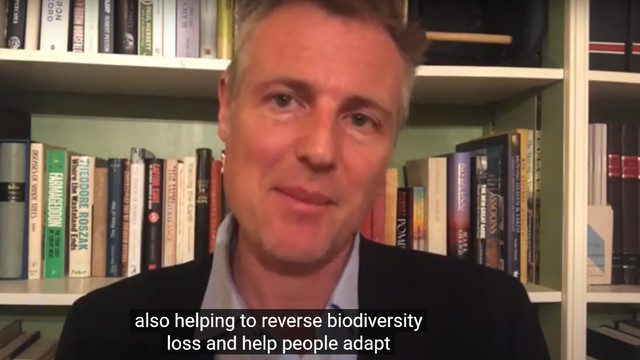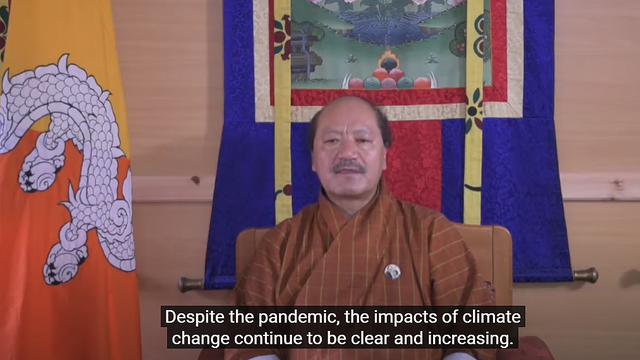CBA14: From local solutions to global action
The 14th International Conference on Community-based Adaptation to Climate Change took place online and was a chance to meet fellow practitioners, listen to local perspectives and share experiences of effective solutions for building resilience to climate change.

A village irrigation project in Madegascar (Photo: Rod Waddington via Flickr, CC BY-SA 2.0)
COVID-19 has made this year like no other. The 14th International Conference on Community-based Adaptation to Climate Change (CBA14) in 2020 was very much the same and yet fundamentally different: it went fully digital.
CBA14 took place online from 21-25 September 2020, and during the weeks beforehand our online CBA conference platform created fantastic opportunities to meet and network with other practitioners, catch up on the latest ideas and hear about activities on the ground that are working to put people at the centre of adaptation.
Over five days in September, there were opportunities to build your capacity and skills, learn from others’ tools and approaches and present your own, and join workshops and dialogues unpacking and delving into key issues. There were plenty of sessions, many of which were suggested by our diverse community of practice.
CBA14 is the only conference that focuses on community-based adaptation, putting the people most vulnerable to climate change at the centre of the conversation: the practitioners, community representatives, local and national government planners, researchers, policymakers and donors. People committed to making change happen, ready to translate talk into action to achieve a climate-resilient future.
CBA brings together the CBA community that is collectively seeking to reimagine solutions that enable transformative outcomes, through the agency of communities driving climate action. It provides an innovative and interactive space that enables the network to drive global ambition for a climate resilient future through:
- Inclusive, gender-transformative and meaningful engagement
- Sharing and collaborating around good practice and challenging assumptions
- Drawing on evidence to inform the scalability of effective approaches, and
- Influencing and shaping decision-making processes.
The key messages from the conference were summarised in a blog by Sam Greene, while a short report on the knowledge and experiences from the event is available to download.
The full video recordings of all the sessions from CBA14 can be found a playlist on IIED's YouTube channel.
Learning opportunities
The conference videos and presentations provided a valuable learning resource for practitioners and policymakers alike. At CBA14, participants were able to learn directly from those working on adaptation on the ground, as participants shared examples of projects, evidence, tools, approaches through the marketplace, skillshares, and workshop sessions. We also delivered our hugely popular Dragon’s Den sessions, which focused on developing strong funding proposals.
Training certificates were issued to participants who completed sessions in the CBA capacity building track.
Maximum networking
CBA conferences draw a wide range of people, from grassroots organisations to policymakers. In this year of cancelled in-person meetings, CBA was one of the few places where South-South networks had a chance to connect – both with colleagues from the global South and with major development partners. Having the conference online allowed us to bring together a wider, more diverse group.
The programme structure was built around networking: we hosted online ‘meet-and-greet’ events in the run-up to the conference, and participants had the opportunity to connect online with leading practitioners from our community and others, with session numbers limited to allow meaningful conversations.
Participants could also use the search tools and messageboards to identify colleagues working on similar issues and connect with them directly on the platform.
The conference themes
CBA14 focused on five key themes and addressed these questions:
1. Climate finance: how can public and private sector finance be accountably and transparently mobilised to scale up climate action, while remaining inclusive?
2. Adaptation technology: how can technology be used to bring about adaptation at national level, and be integrated through policy and finance?
3. Responsive policy: how can social movements inform policy that is ambitious enough to meet the Paris Agreement targets and improve climate adaptation for communities?
4. Nature-based solutions: how can nature-based solutions be made to work for people, nature and climate?
5. Youth stream: how can we transform our institutions so that they can take advantage of young people’s participation in delivering local level adaptation?
Explore the conference agenda and watch a playlist of video recordings of the sessions on IIED's YouTube channel.
CBA14 virtual – why now?
The CBA community – and particularly community-based partners – has been clear that the messages that will be gathered at CBA14, derived from real practice and experience, are needed more than ever, to make sure that climate policy is based on local experience and local knowledge.
COVID-19 may have caused disruption in 2020, but climate change will cause even greater disruption in the years ahead – unless we spend time now exploring workable ways to adapt and build resilience.
It is essential that the perspectives of practitioners are heard at the upcoming Climate Adaptation Summit, the 18th Development and Climate Days, the UNFCCC COP26 and future Climate Action Weeks. CBA14 is committed to creating the space where those perspectives can be developed, amplified, and carried forward by our community of practitioners.
About the organisers
The Royal Government of Bhutan welcomes participants to CBA14. CBA14 is funded by the Climate Justice Resilience Fund, Irish Aid, the Global Resilience Partnership, the Global Commission on Adaptation and IIED, and organised with co-hosts CARE and Practical Action, in collaboration with the contributing partners BRAC, the Huariou Commission, Green Africa Youth, IUCN NL, Environmental Management for Livelihood Improvement Bwaise Facility, African Centre for Trade and Development and Slum Dwellers International.


